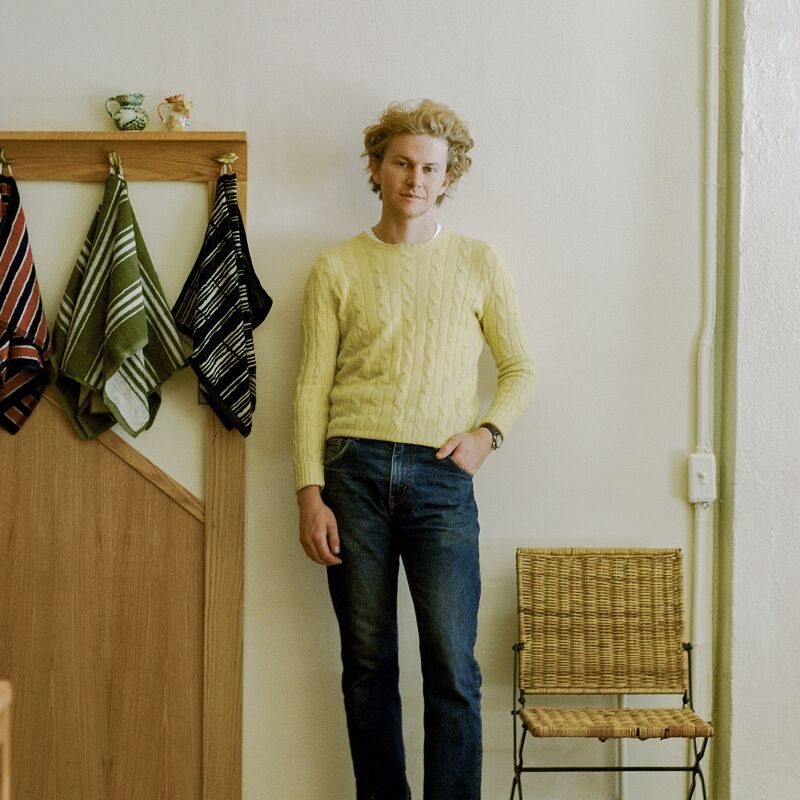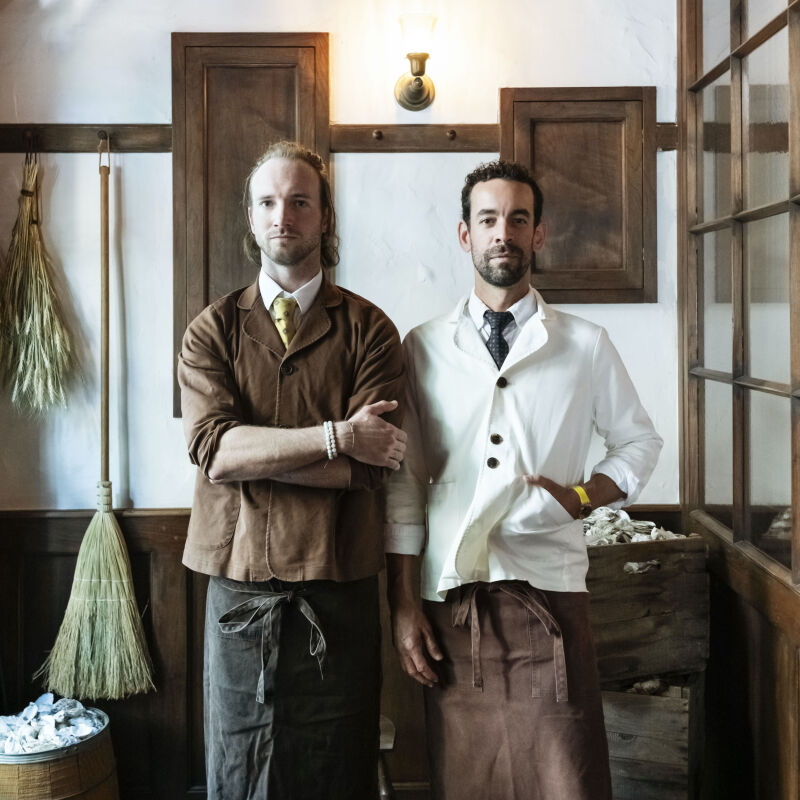At Lacrimi Si Sfinti, or Tears and Saints, in Bucharest, Romanian wood relics share the dining room with Scandinavian designs (Legos constructions, included). It’s an unexpected coupling that somehow works.
Architect Cristian Corvin used old windows, doors, beams, and barn planks gathered from all over the Romanian countryside. He collaborated with managers Michael Pepper and Claudiu and Denise Leonte to create a restaurant that’s all about dusting off–and reinterpreting–native favorite recipes. The design itself, white walls sprinkled with a witty mix of Romanian folkloric motifs, telegraphs the old meets new approach. The name Tears and Saints, by the way, comes from a classic book by Romanian philosopher Emil Cioran–but might also apply to all of the restaurant’s the behind-the-scene’s elbow grease. To learn more, visit Lacrimi Si Sfinti.
Photography by Alex Boghian.

Above: Modern chairs (made using traditional woodworking techniques) were designed by Suto Elek. Twenty white-painted beams were reconditioned to withstand the weight of the ceiling.

Above: An eye-catching wall of stacked firewood.

Above: Window frames salvaged from an abandoned cottage add a playful old-world note.

Above: Folksy Romanian motifs decorate the walls and old tapestry fabric was used to make pillows for a painted church bench.

Above: A wall is dotted with enameled red pot lids (they’re held up by strong wall magnets).

Above: Seen thoughout the space: Legos made into figurines and wall art that evoke traditional Romanian motifs. A total of 16,000 Lego pieces were flown in from Denmark.

Above: A carpenter table is used as bar seating. The stools are by Tom Dixon. Green enamel vintage pendant lights from the fifties were sourced in the UK.

Above: Vintage tools, a wooden moose, and other curiosities adorn the walls.

Above: The coat hanger is made by Swedish company Swedese and adds yet another Nordic touch.

Above: Vintage mirrors adorn the rustic bathroom.

Above: Though the restaurant’s vaulted brick ceilings and plasterwork walls look as if they’ve always been there, they’re all new additions.

Above: The bar area was ingeniously built from wooden planks.

Above: The clean white exterior is paired with 19th century doors that came from a house in Transylvania.
The restaurant’s architect, Cristian Corvin, also designed Bon, another standout Bucharest restaurant filled with ideas worth replicating in your own house; see In Bucharest, Doors as Decor.
Explore more of Europe by checking out our City Guides for visit-worthy restaurants.




Have a Question or Comment About This Post?
Join the conversation